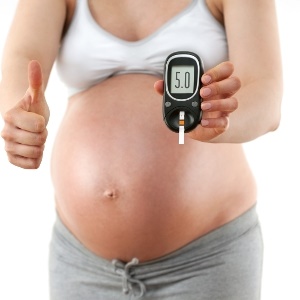
Current guidelines grouping all cases of diabetes diagnosed in pregnancy together as gestational diabetes (which only occurs during pregnancy) are putting the health of women with undiagnosed type 2 diabetes at risk.
Undiagnosed type 2 diabetes
“When diabetes is diagnosed during pregnancy it is classified as gestational diabetes. This does not make provision for women who had undiagnosed type 2 diabetes before falling pregnant, but who were only diagnosed during pregnancy,” says Dr Ankia Coetzee with the Division of Endocrinology at Stellenbosch University’s Faculty of Medicine and Health Sciences (FMHS).
Read: Treating gestational diabetes
“In general, gestational diabetes goes away spontaneously after pregnancy, and therefore treatment is stopped after delivery in patients diagnosed with diabetes during pregnancy. But this can have serious implications for patients with type 2 diabetes whose blood sugar levels remain high after pregnancy,” says Coetzee, who is leading an ongoing study into the prevalence of undiagnosed type 2 diabetes in pregnant women at Tygerberg Hospital.
Untreated diabetes can cause serious health problems including strokes, heart attacks and blindness in the long term.
There is no formal data on the prevalence of gestational diabetes in South Africa, but global statistics suggest that one in every ten pregnant women could have it.
Read: Gestational diabetes and your baby
Recent studies have also shown that gestational diabetes, traditionally regarded as a milder form of diabetes, could have serious implications for both mother and baby.
“There is a higher risk for birth complications, as babies born from mothers with gestational diabetes usually are bigger, making them prone to birth injuries,” says Coetzee. “They also have an increased risk for jaundice and respiratory problems after birth.
Diabetic after pregnancy
“Women who had gestational diabetes, as well as their babies, are at higher risk of developing type 2 diabetes later in life.”
Coetzee’s study will not only provide accurate data on the prevalence of gestational diabetes, but also aims to determine what percentage of these women stay diabetic after pregnancy, and to identify the risk profile for women that develop type 2 diabetes later in life.
Read: Pregnant women should be tested for diabetes This will help doctors to identify patients with type 2 diabetes earlier and ensure women get the treatment they need.
Warning signs
According to Coetzee, pregnant women with any of the following criteria should be screened for gestational diabetes at 24 weeks of pregnancy:
- High body mass index (>40)
- Carried a large baby during a previous pregnancy
- Family history of diabetes
- Previous diabetes in pregnancy
- Advanced maternal age (>40years)
- When glucose is detected with a urine test at any time during pregnancy
Read more:
Gestational diabetes explained
Gestational diabetes: twins on board
Gestational diabetes raises the risk of long-term urinary incontinence




 Publications
Publications
 Partners
Partners















